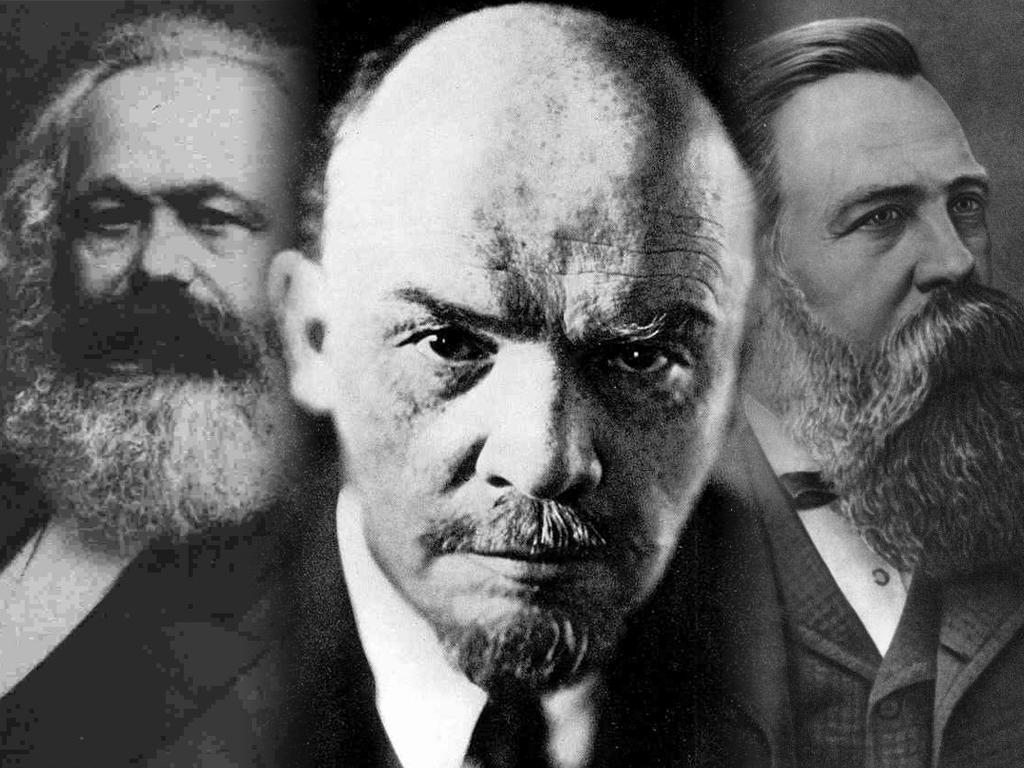by Tim MacBain
In Physics, the Observer Effect refers to the changes that the act of observation will make on the phenomenon (or phenomena) being observed; it is often confused with the Uncertainty Principle (see below*). The Observer Effect is demonstrated in an experiment involving electrons, two slits in a piece of paper, and a sensor. I could try and explain how this experiment works, but the effect of the Physics department observing my attempt might be distressing. Therefore, I will restrict myself to describing the result of the experiment: when the experiment was observed, one thing happened; when it wasn’t, something very different happened. Hence, “the Observer Effect”.
 |
| Marx, Lenin and Engels (image: deviantart.net) |
Thus leads me rather nicely into Marx and Soviet Communism (no, really). My question is this: if Karl Marx (and his collaborator, Friedrich Engels) had not committed his thoughts to paper, would Communism actually have succeeded by now?
It is undeniable that Marx, through his prescient and incisive observations of the workings of the capitalist economic system in the mid-nineteenth century, has influenced most subsequent attempts to build a Communist economic and political system throughout the world. In Russia, from 1917 (many years after Marx’s death), Lenin and the Bolshevik Party saw themselves as Marxist. However, because their country did not conform to the industrialised state that Marx said was required for a communist revolution to take place (Russia was mainly a rural, peasant society in 1917), the Bolsheviks decided to accelerate (or “telescope") the process of industrialisation to catapult it into a state of full-blown Communism as defined by Karl Marx. Essentially, Lenin aimed to skip whole stages of the Marxist process, including capitalism itself.
Had Marx not been so specific about the stages (including bourgeois capitalism and industrialisation) through which a society had to progress in order to reach a communist state, Lenin (and, after him, Stalin) would not have driven Russian society through such a brutal process to industrialise. Such an acceleration required governmental coercion that led, ultimately, to the deaths of many millions of people. Of course, in the process, neither Leninism nor Stalinism (as I am sure my History class is weary of me saying) bore any resemblance to the Communism Marx had advocated, even though the Russian leaders saw themselves as putting Marx’s observations into practice. Meanwhile, China’s Maoism was, as one historian so eloquently put it, ‘killing people… for what they thought’ (n.b. I have not mentioned any other Communist countries, such as Cuba, as I don’t know enough about them yet. If I have made an article-crippling omission, do leave a comment).
What I have been trying to get at is that, by unravelling his elegant observations regarding the social progression of mankind, Karl Marx’s inadvertent effect was to open the door to an ill-thought-through, hasty ‘revolution of the vanguard’ in Russia that implemented adaptations (that became distortions) of his theories that were Communist in little but name. In Marx’s defence, it never crossed his mind that a communist revolution would take place in rural, peasant-dominated Russia. He thought that Britain (because of its advanced state of industrialisation in the mid-nineteenth century) was the country where communist revolution was most likely to take place. One can only wonder what he would have made of the scenes from the Diamond Jubilee this week (he might have said something about the "opium of the masses").
Of course, now it is difficult, if not impossible, to imagine Communism without thinking about the appalling regime that was Stalin’s Russia. As with the electron experiment referred to above, once the event has been observed, it is very different to what would have happened if it had been left well alone.
* Werner Heisenberg's Uncertainty Principle is one of the founding concepts of quantum physics. It is one of the greatest breakthroughs in modern science --- and yet oddly underexposed in comparison with Einstein’s Theory of Relativity for example. The Uncertainty Principle shows that one can find an electron’s velocity or its position, but never both. As noted above, it is often confused, in popular perception, with the Observer Effect.
Comments
Post a Comment
Comments with names are more likely to be published.